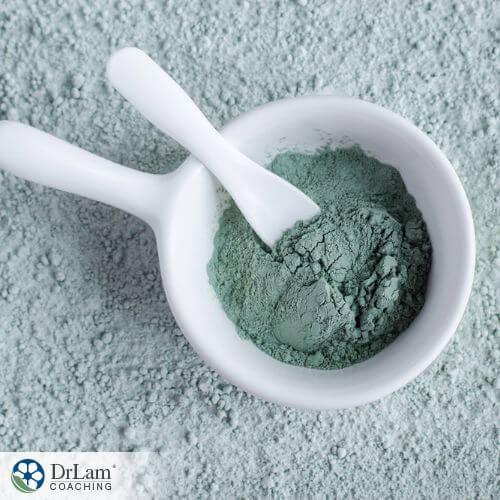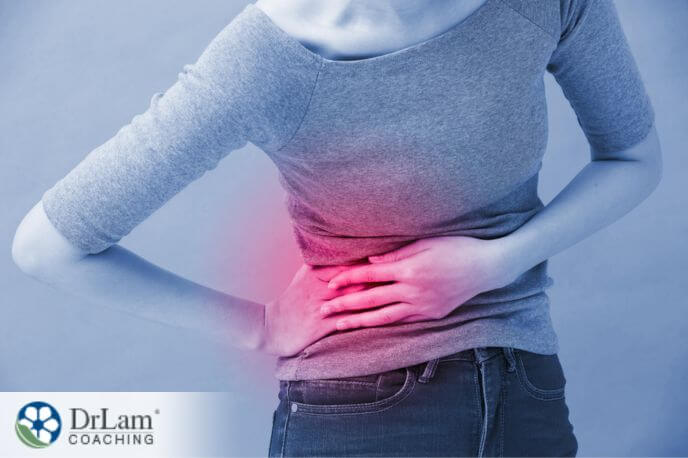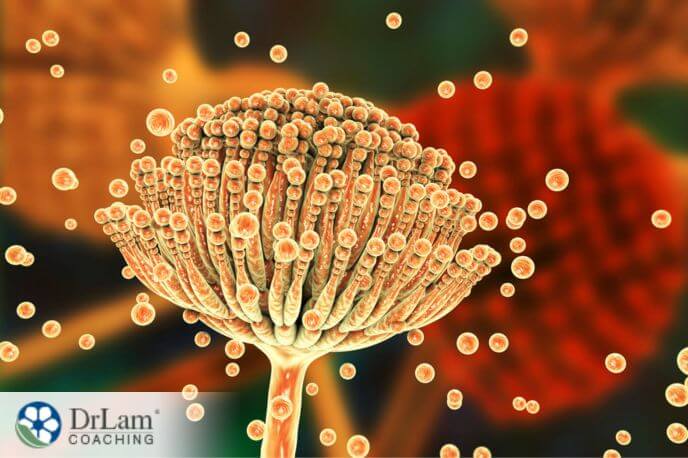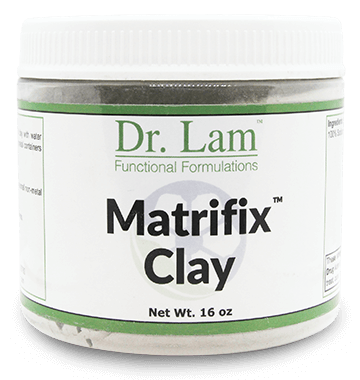Bentonite is a volcanic clay and ancient remedy that’s used today to provide certain health benefits. Bentonite clay is sometimes referred to as calcium bentonite. Today, it's used in medicine, makeup, and other beauty and wellness products. But does research support the use of this substance? Here's what you should know.
 Named after Fort Benton, Wyoming (WY), bentonite is absorbent aluminum phyllosilicate clay, according to the National Library of Medicine. The largest supply in the world is found in Wyoming. It's also called Montmorillonite clay, with the name derived from the region of France known as Montmorillon. It was in this region that bentonite was first found. Furthermore, dating back to ancient times, bentonite has been eaten and used for its claimed therapeutic benefits. This natural clay can be used both internally and externally.
Named after Fort Benton, Wyoming (WY), bentonite is absorbent aluminum phyllosilicate clay, according to the National Library of Medicine. The largest supply in the world is found in Wyoming. It's also called Montmorillonite clay, with the name derived from the region of France known as Montmorillon. It was in this region that bentonite was first found. Furthermore, dating back to ancient times, bentonite has been eaten and used for its claimed therapeutic benefits. This natural clay can be used both internally and externally.
Bentonite is derived from aged volcanic ash and consists primarily of smectite minerals.
The volcanic ash was deposited on the earth’s surface millions of years ago. Through a gradual process, over time, the minute glass fragments present in the ash were compressed by either a river or sea to form a mineral clay compound. The resulting fine particles and loosely bound ions effectively pull toxins and pollutants from the body.<
The terms calcium bentonite and bentonite clay are often used interchangeably. In fact, it’s also called calcium bentonite clay. In reality, however, there are four types of bentonite clay, including potassium, calcium, sodium, and magnesium bentonite.
Sodium bentonite is a plate-like, naturally swelling clay that contains the clay mineral smectite and other minerals that include quartz, calcite, feldspar, and mica. It has a higher pH level than calcium bentonite. Sodium bentonite is usually in industrial applications, while calcium bentonite is non-swelling, and so cannot be used for many of these industrial purposes. It is used more for health, wellness, and beauty applications.
Still, both contain various crystalline clay minerals (alumino-silicate) and either sodium or calcium. Furthermore, the sodium form of the clay contains calcium as an exchangeable ion, while bentonite clay contains sodium as an exchangeable ion.
Both types, however, can be used for facial masks, with sodium bentonite having the capacity to pull more toxins from the skin, while calcium bentonite clay is gentler and supplies the skin with more minerals. Food-grade varieties of both types of bentonite clay can be used for consumption in small amounts.
Bentonite clay has long been eaten or used on the skin to address various issues. It may help:
However, today, you can find it in powder or pill form. It’s also being used as an ingredient in some medicines and cosmetic products. These include:
 There is some research backing certain claims related to specific benefits of bentonite clay. According to a 2017 review published in the Iranian Journal of Public Health, bentonite has several potential uses. It may help with cancer, GI issues, and kidney health.
There is some research backing certain claims related to specific benefits of bentonite clay. According to a 2017 review published in the Iranian Journal of Public Health, bentonite has several potential uses. It may help with cancer, GI issues, and kidney health.
Bentonite clay has been shown to act in several capacities. It is detoxifying, antibacterial, and anti-inflammatory. Specifically, its poly-cationic nature allows for the negatively charged bentonite to absorb positively charged ions, such as minerals that include magnesium, calcium, iron, copper, potassium, and sodium.
Further research published in 2017 shows that bentonite can improve certain skin issues, such as chronic hand dermatitis in adults and diaper dermatitis in infants. It’s believed that bentonite provides protective and healing action on the skin.
The external use of bentonite on the skin is nothing new. It has been used in a number of capacities. Allergic contact dermatitis, caused by poison oak and poison ivy can be alleviated with the use of Quaternium-18 bentonite lotion. It's been shown to be effective at preventing or minimizing symptoms of allergic contact dermatitis linked to these plants. Furthermore, Quaternium-18-Bentonite moisturizing cream has been shown to improve symptoms in chronic hand dermatitis sufferers.
Bentonite has also proven to be effective at addressing diaper dermatitis in infants. In fact, when compared to calendula that's commonly used to remedy this skin disorder, the results are better and bentonite acts faster. Also, it's reported that bentonite provides physical protection for the skin, acting as a barrier against the transfer of toxic organo-phosphorous compounds across the skin.
Its inclusion in commercial sunscreens boosts water resistance and skin adherence, while sun lotions with a certain amount of bentonite mineral are effective at absorbing the highest level of ultraviolet (UV) rays.
As far back as the early 1960s, bentonite has been used to treat diarrhea resulting from a variety of causes. These include viruses, infection, food allergies, food poisoning, spastic colitis, and mucous colitis. Bentonite, administered orally, has been shown to alleviate 97% of these kinds of diarrhea cases.
Furthermore, bentonite can improve symptoms of irritable bowel syndrome (IBS). This is a common, long-term condition that affects the stomach and intestines. Specifically, it has been shown that 3 grams of bentonite taken daily for 8 weeks effectively helped regulate bowel habits in constipation-dominant IBS. However, it was less effective at alleviating pain or discomfort.
Another way that this compound can help the gastrointestinal tract is by supporting nutrient absorption. This is possible from increased gut flora activity. Research indicates that intragastric administration of bentonite could lead to hyperproduction of colonic yeast micro-flora.
As it relates to renal health, bentonite can help to keep the levels of urea (metabolite) in the intestine low. When kidney function declines, the blood urea nitrogen (BUN) level climbs. Bentonite has been reported to promote the circulation of urea from blood vessels to the intestine, and prevent it from being absorbed into the intestine. Furthermore, maintaining phosphorus homeostasis is important for keeping your kidneys functioning at optimal levels. According to one report, bentonite clay minerals have the ability to lower excessive phosphate levels in a person.
It's been indicated that bentonite can prevent the growth of human cancer cell lines U251, implicated in central nervous system glioblastoma. Furthermore, bentonite clay has reportedly been used as a drug delivery system for cancer drugs, like Paclitaxel, 5-fluorouracil, and 6-mercaptopurine. It appears that bentonite clay regulates the degree of metabolic growth components to exert cancer benefits.
 Bentonite clay can serve as an adsorbent of toxic substances, meaning it binds to these substances. In its natural form, bentonite clay has negatively charged molecules. The majority of toxins and heavy metals have positively charged molecules. As such, the two can easily bind together and stay bonded during the process of toxin removal.
Bentonite clay can serve as an adsorbent of toxic substances, meaning it binds to these substances. In its natural form, bentonite clay has negatively charged molecules. The majority of toxins and heavy metals have positively charged molecules. As such, the two can easily bind together and stay bonded during the process of toxin removal.
Mycotoxins, like aflatoxins, have a flat chemical structure making it possible for them to be trapped between the layers of bentonite. When the mycotoxin enters the binder layers, the sharing of electrons between the atoms of mycotoxins and the bentonite clay tightens the bonds. However, other mycotoxins such as deoxynivalenol (DON) or zearalenone (ZEN) have a less flat chemical structure, resulting in less effective absorption.
Still, if you use bentonite clay to bind mycotoxins, it may be necessary to consider using a different binder every two to three months to attract different toxins.
Bentonite clay does have some risk factors you should be aware of.
It’s important to note that the U. S. Food and Drug Administration (FDA) does not regulate health and cosmetics products. Some products on the market do not contain what is listed on the label or do not list ingredients, and they may not be safe. In 2016, the FDA warned against using products labeled “Best Bentonite Clay” and “Bentonite Me Baby”. Thus, you will have to do research to find products that are independently tested by a reputable source. You may also need to test a small amount of a bentonite product to see if you develop a reaction.
Clay has the potential to create an obstruction in the gut. Furthermore, it has the potential to negatively impact nutrient absorption. You must make sure to take it on an empty stomach away from food or supplements and ensure adequate hydration to keep from getting constipation. Capsule and powder forms are available online and in some health food stores.
There is limited safety on bentonite clay as used by vulnerable populations, such as pregnant and breast-feeding women, children, the elderly, and persons with particular medical conditions. It’s best to speak to your doctor before using the clay.
Chronic stress can overwork the NeuroEndoMetabolic (NEM) stress response and the adrenal glands. As such, cortisol levels remain elevated. The development of dysfunctional NEM stress response circuits and Adrenal Fatigue Syndrome (AFS) is often a result.
Among the NEM stress circuits is the Detoxification circuit which helps to fight stress. It’s comprised of the interstitium, immune system, and liver. In combination, they function to eliminate excessive reactive metabolites that invade the body. Chronic stress can place an additional toxic load on the body, while reducing its resources to remove the toxins. When the detoxification response to stress begins to fail, toxins build up in the body. This results in worsening stress.
Detoxification is an important part of adrenal fatigue recovery. Bentonite clay can assist in detoxifying, breaking the cycle of toxin build-up, promoting gut health, and removing toxins from the body via the gut. This may help to restore balance to the detoxification process in the body.
However, always talk to your doctor before taking a new supplement, especially for detoxification, with AFS. The body can be more sensitive than usual during this time and the wrong supplement could backfire.
 If you are purchasing bentonite, it should be classed as smectite, which shows its trait as a type of swelling clay capable of adsorbing toxins at a high degree. A 70-90 cation exchange is desirable in the clay.
If you are purchasing bentonite, it should be classed as smectite, which shows its trait as a type of swelling clay capable of adsorbing toxins at a high degree. A 70-90 cation exchange is desirable in the clay.
If interested in bentonite clay, ensure that you are buying volcanic clay that doesn’t have added ingredients. See to it that the product is 100% pure bentonite clay.
Also, if interested in consuming the clay, look on the product label for phrases such as “food grade” and “of edible quality.”
Bentonite clay is often called calcium bentonite. The clay has certain health and wellness benefits that could help issues such as detoxification, addressing mold exposure, and improving digestive health. Before trying the clay, however, speak to your doctor. Ingesting the clay may not be safe for everyone. In addition, be careful to purchase pure clay from a reputable seller.
If you are interested in how bentonite clay could help your symptoms, the team at Dr. Lam Coaching can help. We offer a free** no-obligation phone consultation at +1 (626) 571-1234 where we will privately discuss your symptoms and various options. You can also send us a question through our Ask The Doctor system by clicking here.

Revitalize your body naturally with Matrifix Clay!
Bentonite clay is derived from volcanic ash and has several health benefits. It can help with bloating, dermatitis, bacterial infections, hair damage, and removing toxins from the body. It's also used as an ingredient in sunscreens, lotions, shampoos, and toothpaste. But eating it also has some serious risks.